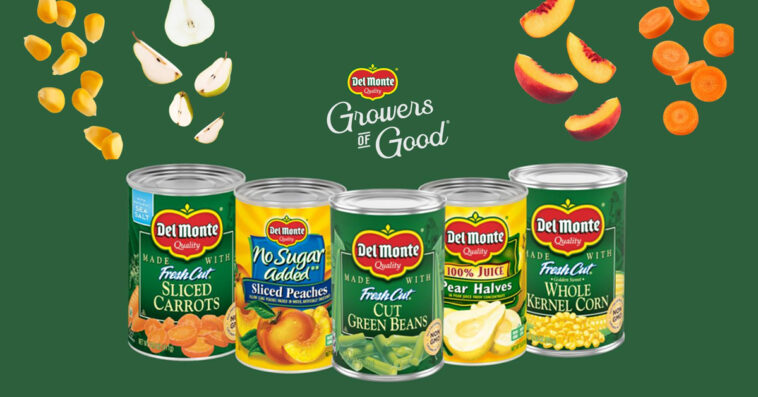After more than a century of gracing American pantries with its iconic canned fruits and vegetables, Del Monte Foods is turning the page on a storied legacy. The 140-year-old food giant has filed for Chapter 11 bankruptcy protection, signaling a dramatic shift for the brand long synonymous with shelf-stable staples. Facing mounting debt, evolving consumer preferences, and industry headwinds, the company announced it will pursue a court-supervised sale in a bid to maximize value and secure its future. While operations are expected to continue throughout the restructuring, the fate of one of America’s most recognizable food brands now hangs in the balance.
Del Monte Foods Begins Turnaround Effort with Chapter 11 Filing
Del Monte Foods, a long-standing leader in the canned goods industry, announced Tuesday that it has filed for Chapter 11 bankruptcy protection.
The company has initiated voluntary Chapter 11 proceedings and entered into a restructuring support agreement with a group of its lenders. The move, Del Monte said, is part of a broader plan to facilitate a court-supervised sale and strengthen its financial foundation.
“This is a strategic step forward for Del Monte Foods. After a thorough evaluation of all available options, we determined a court-supervised sale process is the most effective way to accelerate our turnaround and create a stronger and enduring Del Monte Foods. With an improved capital structure, enhanced financial position, and new ownership, we will be better positioned for long-term success,” said Greg Longstreet, President and CEO of Del Monte Foods.
To support the restructuring and maintain regular operations, the company has secured a commitment of $912.5 million in debtor-in-possession financing from some of its current lenders. This total includes $165 million in new funding and remains subject to court approval. Combined with cash generated from ongoing operations, the financing is expected to provide ample liquidity throughout the sale process and allow Del Monte to continue business as usual, including the pack season currently in progress.
Why Del Monte Foods Filed for Bankruptcy
Del Monte Foods’ decision to file for Chapter 11 bankruptcy stems largely from its mounting debt, which became increasingly unsustainable in recent years. Following its 2014 acquisition by Del Monte Pacific, the company was saddled with a significant debt load. As interest rates surged, so did its financial burden. According to the Los Angeles Times, interest payments climbed from $66 million in 2020 to a staggering $125 million in fiscal 2025, outpacing earnings and straining liquidity. The situation worsened after a controversial debt restructuring in 2024, involving a Liability Management Exercise, which sparked legal disputes with creditors and further destabilized the company’s financial standing.
Compounding these financial pressures was a steady decline in core product sales. Demand for Del Monte’s traditional canned goods began to erode as consumers increasingly turned to fresher, healthier options. The rise of private-label brands during a period of high inflation only accelerated this shift. In response, Del Monte ramped up production based on overly optimistic forecasts. However, slumping demand led to costly surplus inventory and forced the company into deeper promotional spending to move products off shelves.
At the same time, Del Monte was hit hard by broader macroeconomic challenges. Inflation drove up the cost of ingredients and materials, while new U.S. tariffs—particularly a 50% duty on imported steel and aluminum—significantly increased packaging expenses. These external pressures, combined with continued supply chain disruptions and a price-sensitive consumer base, made it even harder for the company to stay competitive.
According to a filing with the New Jersey bankruptcy court, obtained by Reuters, Del Monte Foods estimates its assets and liabilities to be between $1 billion and $10 billion, with the number of creditors ranging from 10,000 to 25,000.
What’s Next for Del Monte Foods
In the short term, business will largely continue as usual. Del Monte Foods has filed customary “first day” motions that, upon court approval, will enable it to continue operating in the ordinary course and without interruption.
Looking ahead, Del Monte’s future depends on attracting the right buyer—one willing to modernize the brand, adapt to shifting consumer preferences, and navigate an increasingly competitive grocery market. While legacy alone won’t guarantee survival, a fresh strategy under new ownership could allow this 140-year-old staple to evolve and remain relevant for decades to come.
Whether Del Monte becomes a revitalized force in the food industry or a cautionary tale will ultimately hinge on how effectively it leverages this moment of crisis into an opportunity for reinvention.
Source: Fox Business, Reuters, Los Angeles Times

